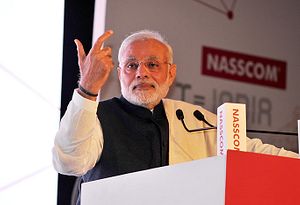When managing headlines becomes the priority of a government, it loses its sense of balance and duty toward discretion.
The way the whole affair of the covert operation against Myanmar-based insurgents has been publicized by the current Indian government is a case in point. It reveals how eager the Narendra Modi regime is to play to the gallery without taking into consideration the finer issues endemic to good diplomacy and governance.
The covert military operation was meant to send a message to the Northeastern insurgents, but the whole incident seems to have boomeranged on the Indian government. Both the government and the media share the blame.
The jingoism of some ministers ended up upsetting not only Myanmar but also Pakistan, which came to be mentioned as a potential target of covert operations by ministers in the Modi cabinet.
The anti-Pakistan remarks by the Indian ministers heated the political debate in Islamabad, where the Pakistani Senate passed a resolution condemning India’s language. Meanwhile, the Indian jingoism strengthened the hands of military and hardcore extremist groups who have always been opposed to any kind of productive engagement with New Delhi. The rhetoric from Delhi helped them shore up their narratives of India-Pakistan enmity.
This drum beating has not gone down well with Myanmar also. Zaw Htay, director in the Myanmar President’s office, notes that “We will not allow any foreign military operations in Myanmar territory. And I want to say this to you—every country must respect the other country’s sovereignty.”
The Telegraph notes that “Zaw Htay’s comments underscore a fast-growing concern in India’s strategic establishment that the drum-beating machismo demonstrated by a series of ministers could hamper future operations for which New Delhi will need help and support from Myanmar.”
“I think it is completely undiplomatic,” says Happymon Jacob of New Delhi’s Jawaharlal Nehru University. In an interview with The Diplomat, Jacob opines that “it is a pity that the government has gone on a hyper nationalist mode to exhibit its exploits in Myanmar. The reality is that Myanmarese government has gone back on its initial statement that it has collaborated with the Indian government.”
Questions are also being raised regarding the necessity of the knee jerk reaction to attack the insurgent camps immediately after the killing of the 18 army officials in Manipur: “If the government knew all along that the terror outfits have been operating from across the border, why it did not do anything about it so far? Diplomacy and statecraft do not work on the basis of revenge,” underlines Jacob.
What is shocking in the whole affair is the attitude of the Indian media. It does not seem to have learned any lessons from its fiasco in Nepal. It’s their chest thumping about India’s help to earthquake victims that earned the wrath of the people in the country.
There is no debate in the media about the need to address the issues of separatism in India’s North East politically. Additionally, voices from the region itself are nowhere to be heard; there is no attempt to hear out the citizens of Nagaland and Manipur about the operation. By excluding local voices, the media is accentuating the existing alienation of India’s northeastern citizens. Manipur Chief Minister Okram Ibobi Singh has said that he was unaware of the military operation.
Jingoism and knee-jerk reactions will do little to advance India’s position as a mature regional power. The government must learn from its misadventure in Myanmar.
































